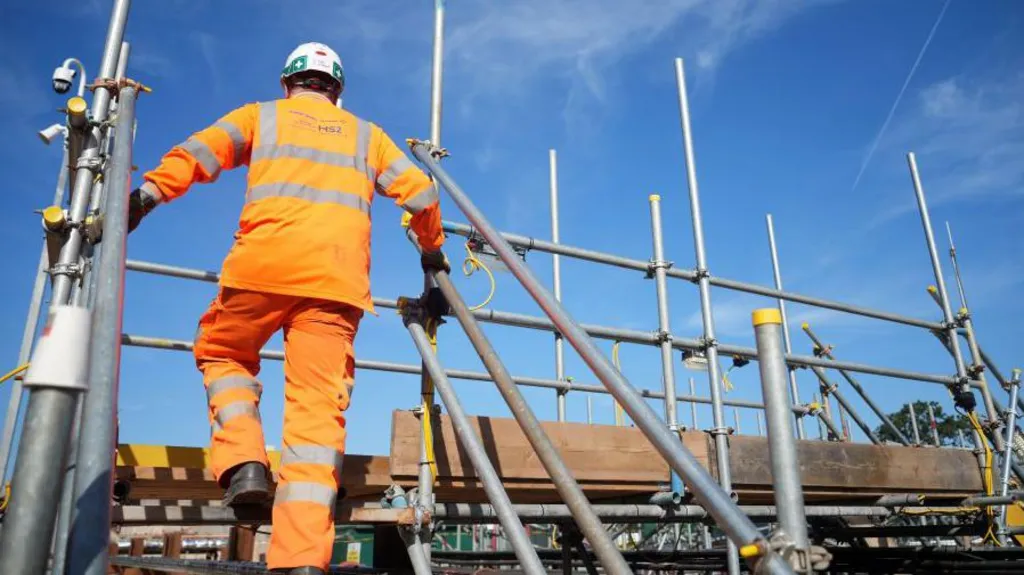
The Treasury has signaled a significant shift in its self-imposed debt rules, aiming to facilitate borrowing for vital infrastructure projects. Treasury Chief Secretary Darren Jones announced that independent oversight mechanisms will be established to ensure more efficient government borrowing for investment.
These new safeguards aim to prevent a recurrence of the financial instability that followed the 2022 mini-Budget introduced by former Prime Minister Liz Truss. Jones emphasized that the forthcoming “guardrails” on infrastructure spending will not only protect taxpayer money but also foster private sector investment in British projects.
Currently, government borrowing for investment is limited by the total debt the government holds, with a self-imposed requirement that this debt must decline within five years. While many affluent nations maintain similar fiscal rules to uphold financial credibility, the Treasury is prepared to relax its targets to secure billions in funding for essential projects.
As the Budget approaches on October 30, Jones stated that these new measures would enable more efficient borrowing for infrastructure initiatives. He contrasted the current plan with the previous government’s approach, which included unfunded tax cuts. During Truss’s brief tenure, her mini-Budget revealed £45 billion in unfunded tax cuts, aimed at stimulating economic growth but ultimately contributing to financial chaos.
Jones asserted the need for “expert, institutional, and independent guardrails” to instill public confidence in government spending. He confirmed that these measures would be specifically designed for capital investment and infrastructure delivery.
One of the pivotal changes is the establishment of the National Infrastructure and Service Transformation Authority, tasked with overseeing a ten-year strategy for a portfolio of major projects. This authority will align its plans with Spending Reviews and long-term investment budgets in key areas like transportation and public facilities. Additionally, the National Audit Office and a newly created Office for Value for Money will continuously evaluate significant projects, such as major train lines, to ensure they deliver expected outcomes.
The government aims to “depoliticize” infrastructure decisions by introducing independent checks akin to the Office for Budget Responsibility. This strategy seeks to provide objective quality control over major spending initiatives, addressing long-standing issues of delays and cost overruns that have plagued the UK compared to other leading economies.
Ministers argue that the existing debt rule has constrained essential investment, contributing to the decline of public services and permitting expenditure on failing initiatives. A Cabinet minister commented, “When we invest in projects, we will ensure they deliver genuine value for money, return on investment, and benefits for communities. The Conservatives have wasted billions on projects that didn’t yield results and were politically motivated. The upcoming Budget will focus on changing that.”
This announcement comes amid growing scrutiny regarding the allocation of funds in the upcoming Budget. Several ministers have expressed concerns over potential cuts to their departments’ budgets. Notable figures reportedly seeking a reconsideration of the spending review include Deputy Prime Minister Angela Rayner, Justice Secretary Shabana Mahmood, and Transport Secretary Louise Haigh.
In addition to these measures, Jones revealed the formation of a new taskforce for infrastructure spending, comprising leaders from major private sector firms like HSBC, Lloyds, and M&G. This group will advise the government on strategic investment opportunities for infrastructure development.
The government’s primary focus is enhancing economic growth, with Chancellor Rachel Reeves underscoring that increased investment in infrastructure is crucial for achieving this objective. On Monday, Prime Minister Sir Keir Starmer hosted a major investment summit aimed at attracting significant foreign investment into the UK. At the summit, he pledged to eliminate regulatory barriers that hinder investment and urged regulators to prioritize economic growth.
As the government embarks on these reforms, it seeks to strike a balance between prudent fiscal management and the necessity of substantial investment in infrastructure to propel the UK economy forward. The upcoming Budget will be pivotal in outlining how these new strategies will be implemented to benefit the public and stimulate economic growth.








